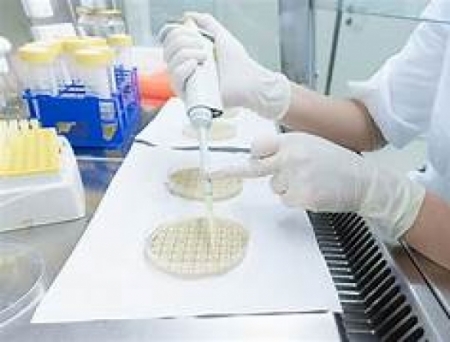HKBU Develops Low-Cost Microfluidic Flow Cytomolecular Analyser, Paving Way for Advanced Diagnostic Manufacturing

Hong Kong Baptist University (HKBU) researchers have developed an advanced diagnostic device, the “Microfluidic Flow Cytomolecular Analyser,” which promises to make disease testing faster, more affordable, and more widely accessible. The new analyser, supported by the Hong Kong Government’s RAISe+ Scheme, offers a cost that is just one-tenth to one-fifth of conventional flow cytometers, which often cost several million Hong Kong dollars.
Flow cytometers are considered the gold standard in diagnosing blood disorders such as leukaemia, relying on laser technology to detect and analyse cellular characteristics, proteins, DNA, and RNA. Traditional models, however, require multiple laser sets to detect six or more parameters simultaneously, pushing up costs and complexity. In contrast, HKBU’s analyser leverages microfluidic chip technology to achieve multi-parameter detection with just a single laser set, making it significantly more efficient and economical.
The device integrates particle and molecular detection, including proteins and nucleic acids, and employs artificial intelligence to process tens of thousands of cell data instantly. This allows for rapid and precise analysis, reducing the burden on laboratories while improving the accuracy of diagnosis.
Led by Professor Lei Bo, the research team combined expertise in optical design, microfluidics, bioinformatics, and software algorithms, supported by collaborations across departments at HKBU and Beijing Normal-Hong Kong Baptist University. With over a decade of experience in developing testing reagents and devices, the team believes the analyser’s portability, ease of use, and affordability will accelerate the global adoption of precision diagnostics.
In addition to this breakthrough, HKBU teams are also working on other cutting-edge technologies, such as an automated multiplex diagnostic system capable of detecting 45 respiratory pathogens, a low-cost “barcode-like” cell sensor for drug-resistant bacteria, and a multi-mode photodetector for use in food safety and traditional medicine testing. Together, these advancements highlight HKBU’s growing contribution to medical diagnostics, environmental monitoring, and public health innovation.
Flow cytometers are considered the gold standard i HKBU Develops Low-Cost Microfluidic Flow Cytomolec The new analyser, supported by the Hong Kong Gover
Last news about this category

We use our own and third party cookies to produce statistical information and show you personalized advertising by analyzing your browsing, according to our COOKIES POLICY. If you continue visiting our Site, you accept its use.
More information: Privacy Policy














